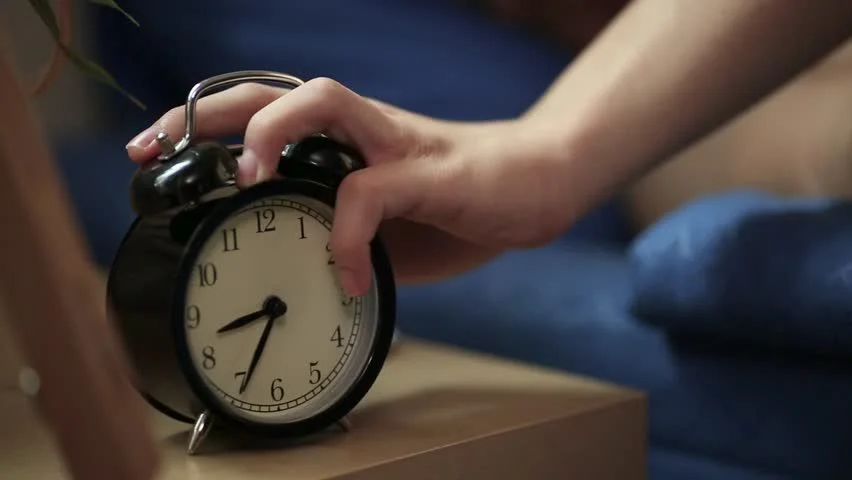Supporters of daylight saving time (DST) argue that it saves energy, promotes outdoor activity on summer evenings, and is, therefore, good for both physical and psychological health, reduces traffic accidents and crime, and is good for business. Opponents argue that DST disrupts human circadian rhythms, and increases fatal traffic accidents, as well as the risk of heart attack and stroke.
שטי֜צערס פֿו֜נעם זו֜מער־זיי֜גער טענהן, אַז ער שפּאָרט ענע֜רגיע, מו֜טיקט דרוי֜סנדיקע אַקטיוויטע֜טן אין זו֜מער־אָוונטן, און איז דערפֿאַ֜ר געזו֜נט סײַ צום פֿי֜זישן סײַ צום פּסיכאָלאָ֜גישן געזו֜נט, רעדוצי֜רט די צאָל טראַ֜פֿיק־סיבות און פֿאַרברע֜כנס, און איז גוט פֿאַר די געשע֜פֿטן. קע֜גענערס טענהן, אָ֜בער, אַז דער זו֜מער־זיי֜גער שטערט דעם מע֜נטשלעכן גו֜ף־זיי֜גער, און הע֜כערט די צאָל טראַ֜פֿיק־טוי֜ט־סיבות, ווי אויך די רי֜זיקע פֿון האַ֜רצאַטאַק און מוח־אַטאַ֜ק.
alarm clock: דער װע֜קער, ־ס; דער װע֜קזײגער, ־ס; דאָס װע֜קערל, ־עך
[DER VÉKER, -S; DER VÉKZEYGER, -S; DOS VÉKERL, -EKh]
analog clock: דער אַנאַלאָ֜ג־זײ֜גער, ־ס
[DER ANALÓG-ZÉYGER, -S]
bedtime: די צײַט זיך צו לײגן שלאָפֿן; די צײַט צו מאַכן נאַכט
[DI TSAYT ZIKh TSU LEYGN ShLOFN; DI TSAYT TSU MAKhN NAKhT]
For the complete list, click here to go to the archive at “Verter fun der Vokh”


























